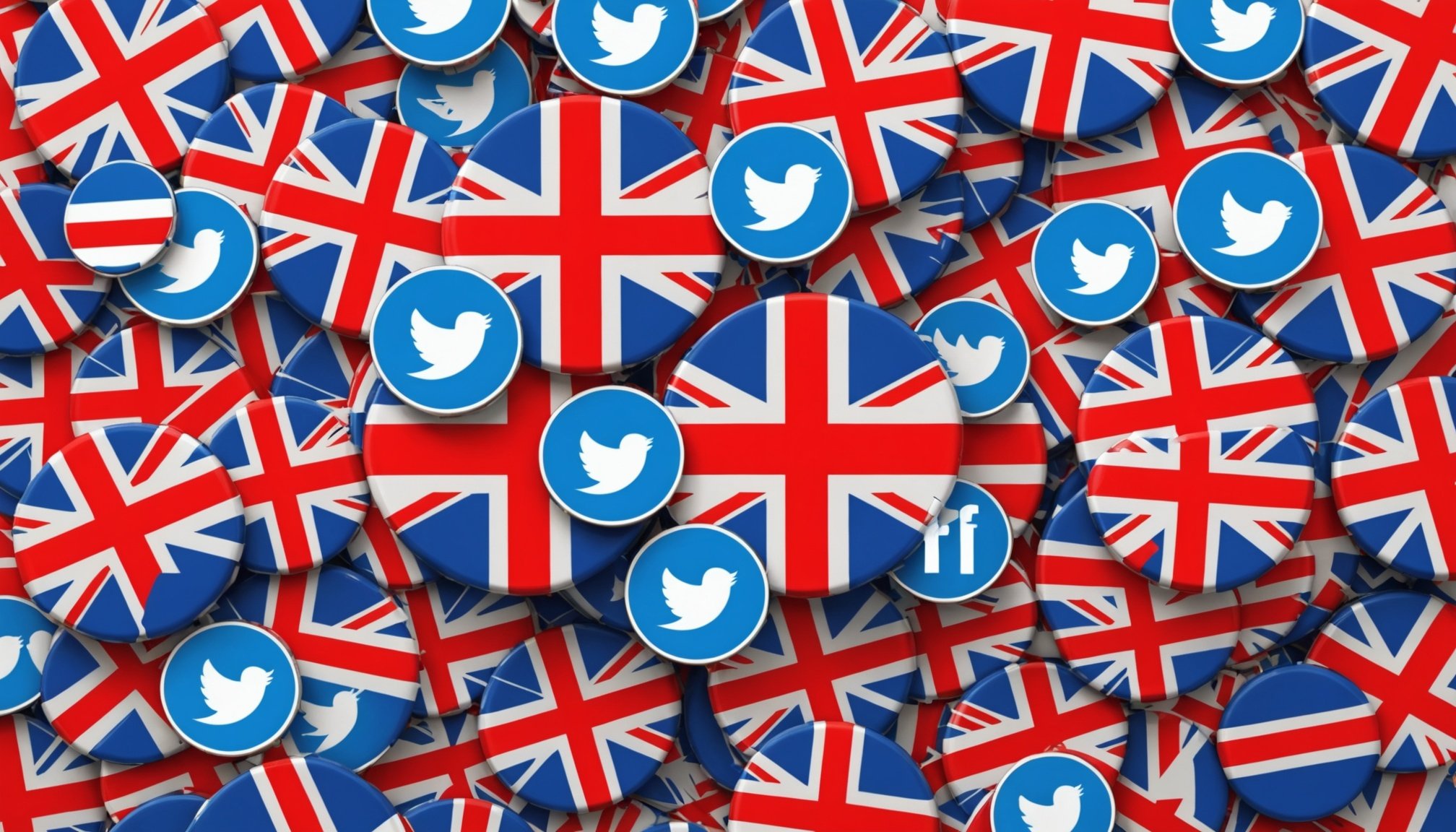Unlocking Social Media Insights: Revolutionizing Political Campaign Strategies in the UK
The Evolution of Political Campaigning in the Digital Age
In the UK, the landscape of political campaigning has undergone a significant transformation over the past decade, largely driven by the rise of social media and digital technologies. What was once a realm dominated by traditional media and door-to-door canvassing has now become a complex, data-driven environment where social media platforms play a pivotal role.
The Rise of Social Media in Politics
Social media has emerged as a critical tool for political engagement, allowing candidates and parties to reach a vast audience with unprecedented ease. According to a study by the Oxford Internet Institute, social media platforms such as Facebook, Twitter, and TikTok have become essential spaces for political discourse, mobilization, and the dissemination of information[2].
In parallel : Essential Tactics for Enhancing Mobile App Security in UK Fintech Enterprises
For instance, during the 2019 UK general election, social media was heavily utilized by political parties to target specific demographics and mobilize supporters. Research by Sam Power and Ben Mason analyzed the Facebook Ad Archive to reveal how parties focused their online campaigns, often creating echo chambers that reinforced existing political views rather than engaging with dissenting voices[5].
Leveraging Data and Analytics for Targeted Campaigns
The use of data and analytics has become a cornerstone of modern political campaigning. By analyzing media data and behavioral patterns, campaigns can tailor their messages to specific segments of the electorate, increasing their effectiveness.
In parallel : Transforming UK IT Customer Support: Must-Know AI Innovations for Success
Micro-Targeting and Personalization
In India’s recent elections, the ruling Bharatiya Janata Party (BJP) exemplified the power of micro-targeting through social media platforms like WhatsApp. This strategy allowed the party to deliver highly personalized messages to voters, significantly enhancing their campaign’s reach and impact[2].
In the UK, similar techniques are being employed. For example, the Labour Party’s digital campaign during the 2024 general election utilized advanced data analytics to identify and engage with key voter groups. This approach helped the party to refine its messaging and allocate resources more efficiently.
The Role of Artificial Intelligence in Political Campaigns
Artificial intelligence (AI) is increasingly being integrated into political campaigns, though its impact is still evolving.
AI in Campaign Messaging
While AI has the potential to revolutionize campaign messaging, its actual use in the 2024 elections was limited. In some cases, such as in South Africa and Indonesia, politicians used generative AI to create deepfakes or digital avatars, but these tools did not play a significant role in shaping voter opinions on a large scale[2].
However, AI is expected to become more prominent in future campaigns, particularly in areas such as data analysis and predictive modeling. For instance, AI can help campaigns predict voter behavior and optimize their outreach strategies based on real-time data.
Combating Disinformation and Misinformation
One of the most significant challenges facing political campaigns in the digital age is the spread of disinformation and misinformation.
Education and Media Literacy
To combat this issue, organizations like Shout Out UK are advocating for increased political and media literacy education. By equipping young people and adults with the skills to critically evaluate online information, these initiatives aim to build democratic resilience against disinformation[1].
For example, Shout Out UK’s collaboration with Ofcom on the “DISMISS” campaign aimed to empower first-time voters with the skills to identify and dismiss disinformation during the 2024 UK general election.
Case Study: The Impact of Social Media on the 2024 UK General Election
The 2024 UK general election provided a unique case study on the impact of social media on political campaigns.
TikTok and Radical Right Parties
TikTok, in particular, played a significant role in the election. Radical right parties, such as UKIP, leveraged the platform to reach a younger audience, often gaining more followers and likes than mainstream parties. This phenomenon highlights the context-dependent impacts of social media on political discourse[2].
Practical Insights and Actionable Advice for Campaigns
For political campaigns looking to leverage social media effectively, here are some practical insights and actionable advice:
Understanding Your Audience
- Use Data Analytics: Utilize social media analytics tools to understand your audience’s demographics, interests, and behaviors.
- Segment Your Audience: Segment your audience to deliver targeted messages that resonate with different groups.
Creating Engaging Content
- Be Authentic: Ensure your content is authentic and aligns with your campaign’s values and message.
- Use Visuals: Incorporate visuals such as videos and images to make your content more engaging.
Combating Disinformation
- Educate Your Team: Ensure your campaign team is educated on how to identify and combat disinformation.
- Collaborate with Fact-Checkers: Collaborate with independent fact-checkers to verify the accuracy of your messages.
Table: Comparison of Social Media Platforms in Political Campaigns
| Platform | Key Features | Political Use | Examples |
|---|---|---|---|
| Wide user base, detailed targeting options | Mobilizing supporters, micro-targeting ads | Labour Party’s 2024 campaign[5] | |
| Real-time engagement, hashtag campaigns | Live updates, debates, and Q&A sessions | UK leaders’ debates during elections | |
| TikTok | Short-form videos, younger audience | Reaching younger voters, creating viral content | UKIP’s 2024 campaign[2] |
| Private messaging, group chats | Micro-targeting, personalized messages | BJP’s 2024 Indian election campaign[2] |
Quotes from Experts
- “We are thrilled to be working with Shout Out UK to ensure children have the skills they need to flourish in an online world.” — Claire Levens, Head of Media Literacy, Ofcom[1]
- “Digital technologies offer varying possibilities for political candidates and parties during election campaigns, such as micro-targeting voters and leveraging social media platforms to advertise their messages.” — Licinia Güttel, DPhil candidate at the Oxford Internet Institute[2]
- “The increasing digitalisation of societies also poses political and democratic tasks, and we need to shed light on political parties’ policy propositions on digitalisation.” — Licinia Güttel, DPhil candidate at the Oxford Internet Institute[2]
The Future of Digital Government and Political Campaigns
As we move into 2025, the landscape of digital government and political campaigning is set to evolve further.
Digital Transformation in Government
In the UK, the Labour Party’s victory in 2024 led to the establishment of a new “Digital Centre” within the Department for Science, Innovation and Technology (DSIT). This centre aims to drive innovation, transform services, and improve lives through data-driven decision-making[4].
Similarly, in the US, the new administration is focusing on government modernization with a technology-focused approach, led by figures like Elon Musk and Vivek Ramaswamy. The Department of Government Efficiency (DOGE) is expected to play a crucial role in revamping federal legacy systems and improving government efficiency[4].
The integration of social media and digital technologies into political campaigns has revolutionized the way parties engage with voters, disseminate information, and combat disinformation. As we look to the future, it is clear that these trends will continue to shape the political landscape.
By leveraging data analytics, creating engaging content, and combating disinformation, political campaigns can harness the full potential of social media to achieve their goals. As Licinia Güttel from the Oxford Internet Institute aptly puts it, “Digital technologies offer varying possibilities for political candidates and parties during election campaigns,” and it is up to us to ensure these possibilities are used responsibly and effectively.
In the words of Claire Levens from Ofcom, “We are thrilled to be working with Shout Out UK to ensure children have the skills they need to flourish in an online world.” This emphasis on education and media literacy is crucial as we navigate the complexities of the digital age in political campaigning.











